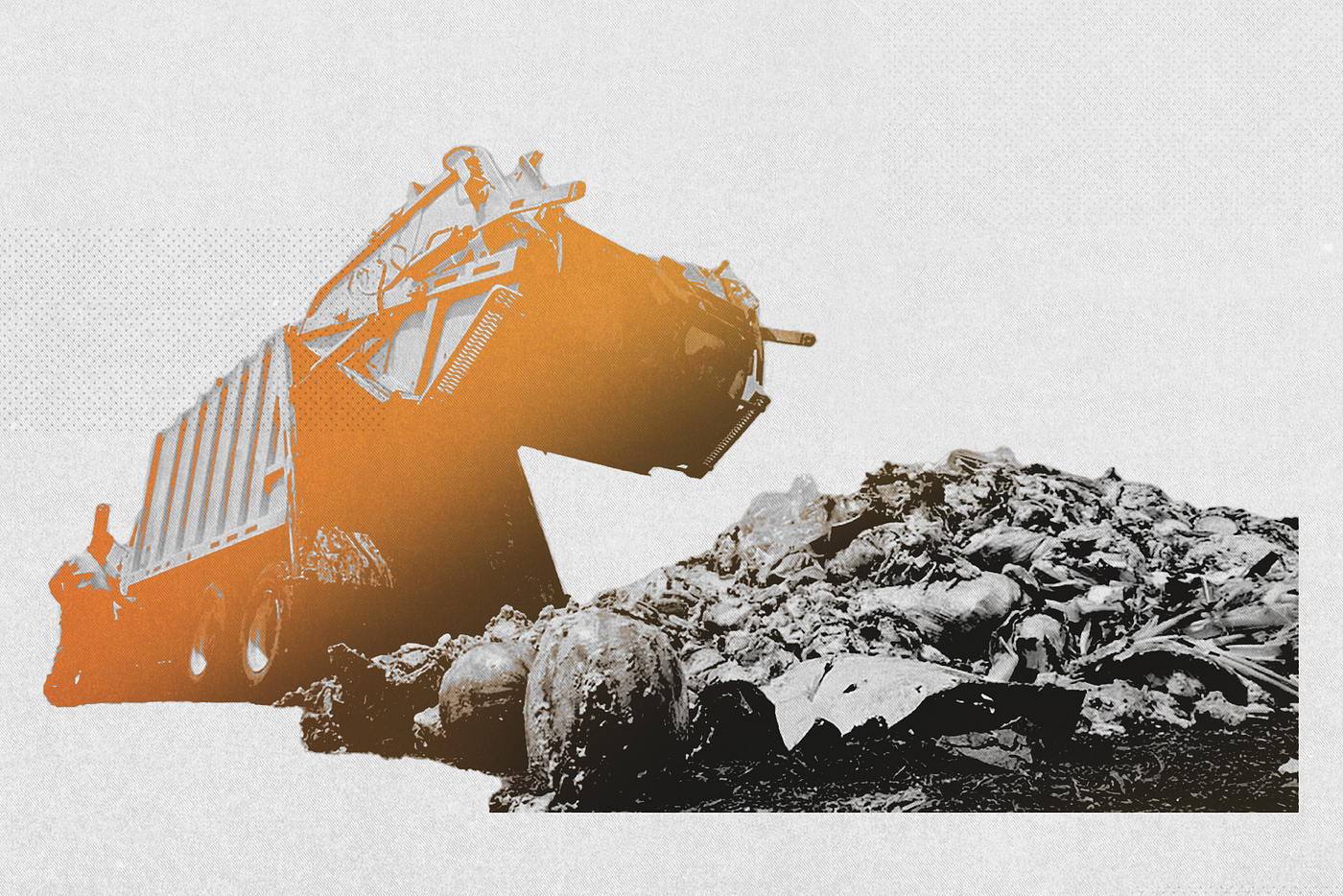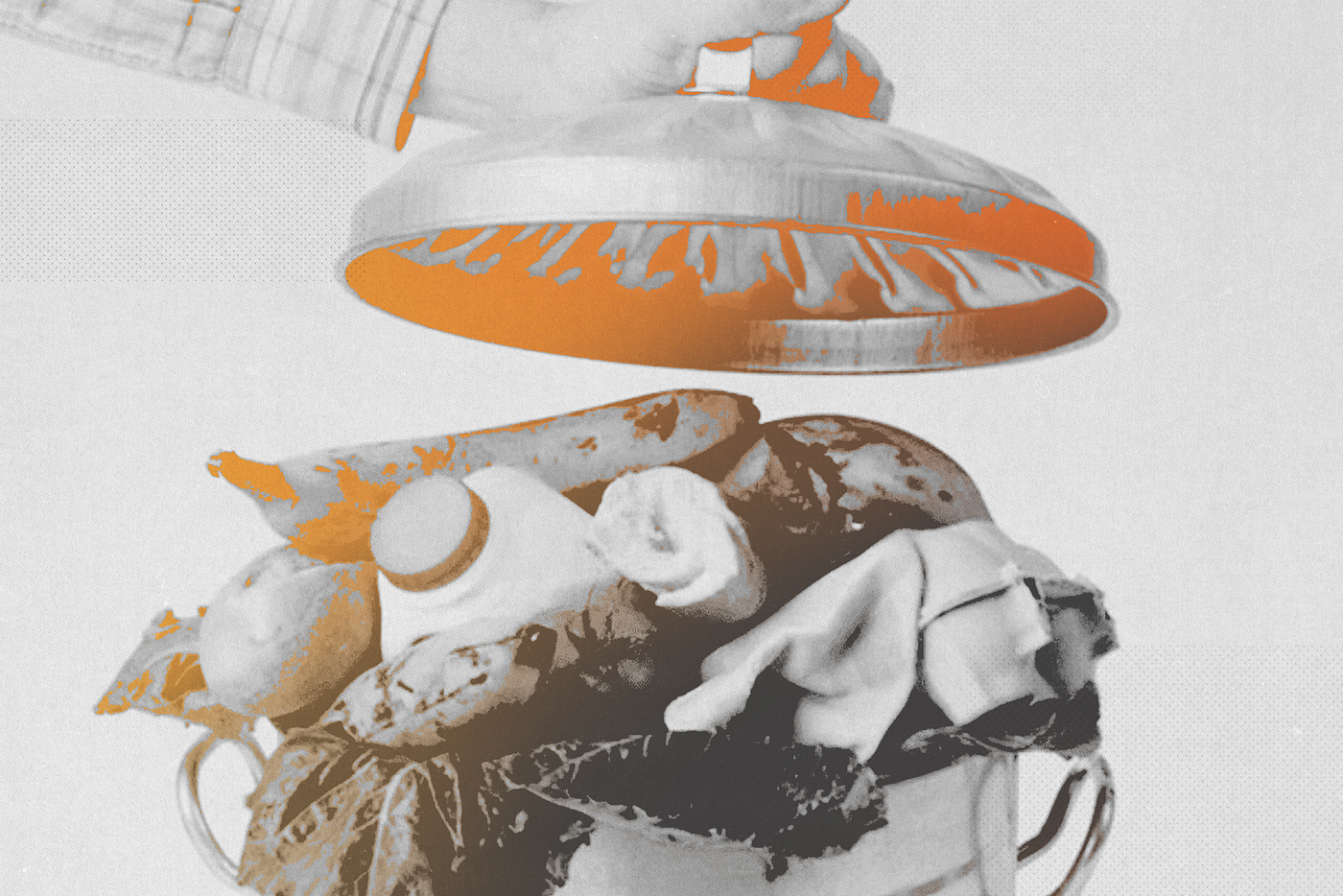OLIO connects neighbours with each other, and volunteers with local businesses, so that surplus food & other household items can be given away, not thrown away. OLIO has grown to over 5 million users and its impact has been widely recognised, most notably by the United Nations who highlighted OLIO as a “beacon” for the world, and by Vivatech who awarded OLIO “Next European Unicorn”. OLIO’s vision is to reinvent completely how people consume by making it hyper-local and sustainable.
Tell us a bit about your background and your projects so far.
I grew up on my parents’ family farm in North Yorkshire in the North East of the UK. I worked incredibly hard on that farm throughout my childhood with my two younger brothers. I knew very early on that I didn’t want to be a farmer or a farmer’s wife, and so I went to Cambridge University where I studied social and political sciences. After graduating from that, I still didn’t really know what I wanted to do, and so I became a strategy consultant, which is a fantastic first job for someone who’s curious about lots of things but isn’t sure where their natural home is. I did that for three years. I then realised that I wanted to do, not just advise, and so I moved over into industry. I spent the subsequent 10+ years working in a variety of sectors — but always in the digital space — as a divisional managing director.
The inspiration to found OLIO came seven years ago now. I was moving country and found myself on moving day with some good food that we hadn’t managed to eat, but that I couldn’t bring myself to throw away. And so I set off on a bit of a wild goose chase to try and find someone to give it to, and I failed miserably. Through the whole process, it seemed to me crazy that I should have to throw this food away when there were surely plenty of people within hundreds of metres of me who would love it, the problem was they just didn’t know about it. And so the idea of OLIO, a mobile app where neighbours and local shops & cafes can share surplus food, came about.
Once I’d had the original idea, I then started to research the problem of food waste more broadly with my co-founder Saasha Celestial-One, and what we discovered shocked and terrified us.
It’s no exaggeration to say that food waste is one of the largest problems facing mankind today and needs to be solved in our lifetime given that we have another 2.3bn people joining the planet by 2050!

© Mustard Seed MAZE
Why do you care about food waste?
When you spend the first two decades of your life on a farm, you understand just how much hard work goes into producing food, and so it’s very natural to dislike intensely the idea of it being thrown away. We know that we throw away a third of all the food we produce. So, it’s very personal to me.
There is also the enormous role that food waste plays in contributing to the climate crisis. If food waste were to be a country, it would be the third-largest source of greenhouse gas emissions after the USA and China. Project Drawdown, which is a collaborative piece of work by several hundred of the world-leading climate change scientists, recently stack ranked the top one hundred solutions to the climate crisis and in position number one is reducing food waste and that comes above electric cars, above solar power, and above a plant-based diet!
Tackling food waste is the most powerful lever that humanity has to pull to try and solve the climate crisis.
What are the main hopeful trends that you see in the food waste space?
The world has woken up to the climate crisis and people are starting to understand the terrible impact that humanity and our food system has had on and is having on the planet.

© Mustard Seed MAZE
Up until now the conversation about food waste was ‘How much money we’re wasting through throwing away food?’, and that didn’t actually do much to engage people or change behaviour. Whereas now I think people are realising that wasting food is really, really bad for the planet and the climate and biodiversity and people also just morally think that food waste is wrong. Now that we’re talking about it, people recognise just how prevalent food waste is, so it’s gone from being a problem that we didn’t even know we had to one that people care about solving. And that’s what really exciting.
What role does community play in OLIO’s success?
OLIO looks like an app, but really its beating heart is its community. Our users tell us that whilst they joined OLIO because they hate waste, what keeps them using and raving about it is the joy that they experience through meeting a neighbour!
Recent research found that over 40% of OLIOers say that they’re less lonely since having joined OLIO, and over 40% have also made local friendships too.
Another critical aspect of our community is our volunteers — we have over 50,000 volunteers who are spreading the word about OLIO in their local communities, and also collecting and redistributing unsold food from local businesses at the end of the day, via the app. So many people tell us that OLIO has “restored [their] faith in humanity” and that the community is like a “beacon of hope”.
What were the main obstacles to getting you to where you are now?
One of our biggest challenges has been how to grow the user base with a very limited marketing budget. We’ve overcome this thanks to our Ambassador programme which has harnessed the passion of 50,000+ volunteers to spread the word about OLIO in their local communities.
Another challenge has been encouraging new OLIOers to take a leap of faith and add a listing. It’s hard to believe, but over half of all food added to the app is requested in under 30 minutes, and half of all non-food items are requested in under 4 hours! So we ask absolutely everybody to just give it a try, and once they’ve experienced how fun and easy it is to share food with a neighbour they’re converted.
Finally, and perhaps the biggest challenge of all though has been fundraising — particularly as a female-founded tech 4 good business.
For context, only 1% of all venture capital investment goes into female-founded businesses, 89% goes into male founded businesses and 10% goes into mixed teams. Thankfully we’ve managed it and have raised over $50 million so far, but the experience has been absolutely brutal, and it’s not something I’d wish upon anyone.
At OLIO, we always looked for what we describe as conviction based investors: the ones that resist the lure of FOMO, that genuinely have their own conviction, that are mission obsessed and that are in it for the long run. So we are proud to have partnered with a few that are exactly like that in our recent series B: VNV Global, Luxor, a New York hedge fund, and also DX Ventures, which is the venture arm of Delivery Hero.
What is keeping you up at awake at night these days?
I guess the bigger picture is the climate crisis. You know, the reality is that even the pledges that have been made at Glasgow Climate Change Conference get us nowhere near to where we want to be. Currently, we’re on track for a three to six degree warmed world right so that definitely keeps me awake at night.
As for OLIO, we just closed a $43m series B round last summer. That has been game-changing for us because it has enabled us to hire some incredible talent; specifically, we’ve brought in eight senior hires to head up each of our functions.
While this growth is really exciting, it is also obviously a lot of work. They’ve all joined us in the past two months. This means the company is going through a profound metamorphosis process, growing from being that kind of small scrappy resource-deprived startup to a scale-up.
Does it scare you sometimes?
Hum, no. I mean, yes, sometimes. It’s a weird process right now for Saasha and me as founders. We used to be involved in everything and now suddenly we’ve got to extract ourselves as rapidly as we dare from the day to day operations. It feels like our child is going from primary school to secondary school. So there’s that real sense of mourning for the joy and the wonder of those early days, which at the time was exhausting and entailed so much doubt and challenges. We have a lot of affection for those early days, but equally, in the same way as when your child goes to secondary school, we’ve got all that blossoming potential ahead, which is incredibly exciting.
How do you see ourselves tackling food waste in 2030?
We’ve set ourselves an enormous target at OLIO: we want one billion OLIOers by 2030. Already today I see there has been a step-change in terms of the level of engagement with businesses with the issue of food waste. For many years it was sort of the dirty secret of the food and events industries. It took place behind closed doors. It wasn’t measured. It wasn’t monitored. That has now changed very, very rapidly, and employees and customers are calling time on food waste. They’re saying this is no longer acceptable for businesses to be throwing away food in this day and age. Not when we are struggling to figure out how we’re going to feed ten billion people while throwing away a third of all the food we produce. As proof of this change is our Food Waste Heroes Programme that enables food businesses (supermarkets, contract caterers, corporate canteens, quick service restaurants, dark warehouses, schools etc) to have zero food waste locations. This is thanks to our team of 50,000+ trained volunteers who redistribute surplus food to the local community via the OLIO app, all underpinned by our world-first technology and food safety management system. Our clients include Tesco, Pret a Manger, Booker, Compass Catering and many more; we’re active in the UK and Ireland, and expanding as we speak to Singapore and Mexico.
What excites you about the Venture Partner role and what do you expect to get out of it?
We have the 17 Sustainable Development Goals that need to be delivered very very rapidly, and there is increasing scrutiny from employees and consumers. So I also believe there is an outsized investment opportunity in this space.
In terms of personal fulfilment and purpose, I want to spend every minute of my working day doing something that is clearly tangibly delivering impact. So I feel very aligned with MSM in that. I am also aware of how hard it is to make it as an early-stage impact entrepreneur and so anything that I can do to give back to that ecosystem is something that makes me really happy.
To learn more from Tessa, follow here. At MSM we care deeply about backing solutions addressing food waste from farm to fork, including OLIO, Winnow Solutions, Rubies in the Rubble, Kitch and Collectivfood. Please get in touch if you are working on the next big idea in this space.
